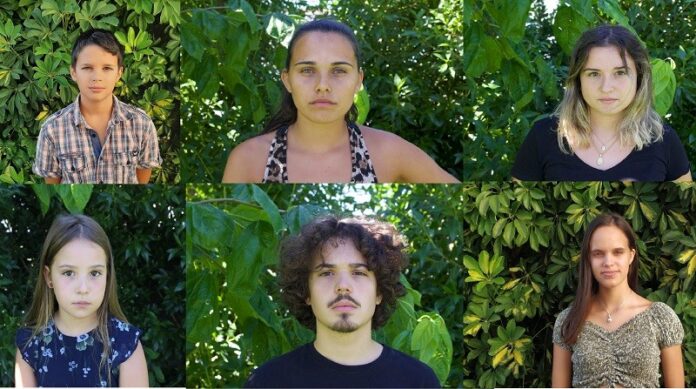All 32 countries in the European Union are in court fighting a case in The European Court of Human Rights that accuses them of inaction on climate change. The six young people between the ages of 11 and 24 have stated in their complaint that their human right to life was violated by the inhumane lack of action on climate change.
The complainants point to their experiences with the wildfires that occurred in Portugal’s Leiria region in 2017 that killed 66 and destroyed 20,000 hectares (over 49,000 acres) of forest. The case has been crowdfunded and according to Gearóid Ó Cuinn, Director of the Global Legal Action Network, in the United Kingdom, “is unprecedented in its scale and…consequences” involving so many countries defending themselves in court.
André dos Santos Oliveira, age 15, is one of the complainants. In a Guardian article, he states, “These European governments are failing to protect us. We are living in the face of climate impacts across Europe. In Portugal this summer we experienced heatwaves which are getting worse and worse. Our ability to do anything, to live our lives, is becoming restricted. The climate crisis is affecting our physical health and our mental health; how could you not be scared?”
Another complainant stated “Where I live will soon become an unbearable furnace” noting that EU governments have failed to act with any sense of urgency. It is the lack of urgency that makes this case so compelling with EU governments being accused of failing to produce meaningful climate change legislation or enforce existing regulations against greenhouse gas (GHG) emitters. The end result is, that instead of global atmospheric temperatures not exceeding 1.5 Celsius (2.7 Fahrenheit), forecasts within the lifetime of the complainants point to temperatures being 3 Celsius (5.4 Fahrenheit) warmer.
Have the EU countries failed to act? In April 2023, the European Parliament passed a bill to apply a carbon tax to the biggest producers of GHGs. Other legislation has created a timetable for phasing out, by 2035, the sale of automobiles that are powered by fossil fuels. And the European Parliament, in this last month, has also established a 70% sustainable fuel threshold for the continent’s airlines to be achieved by 2050.
Do any of these actions address the complaint brought before the court? For the young people trying to make their case that the EU countries are violating their right to life through delays in producing meaningful action on the climate, their arguments are simple. By the end of their lives, the irresponsibility of those who govern will make life much harder in a much hotter world. States, Catarina Mota, who is 23 and one of the complainants, “It is…difficult to comprehend that this is just the beginning in terms of the extreme heat….there will be even more extreme heatwaves which last for a month or more. This will be unbelievable. Governments around the world have the power to stop this. European governments are choosing not to take their part. We cannot stand by and watch this happening.”
The trial which was scheduled to begin in Strasbourg, Germany, this week, is being heard by 17 judges. To live in an environment where wildfires, extreme heat and weather events dont lead to flash floods and dams breaking, is a right to life issue. Governments owe their citizens an environment that is not inhumane, and that subjects them to demeaning circumstances. It is expected that the prime argument of the EU countries’ lawyers will be that, so far, climate change is not a threat to the extent that these young people claim. But they aren’t just arguing in the present, but looking at future generations that will follow.
The Portuguese youth filing their suit are among a number of similar suits being filed against governments around the world for inaction on the climate change file. What Greta Thunberg started in Sweden by raising her young voice against those in power has established roots across the planet.









